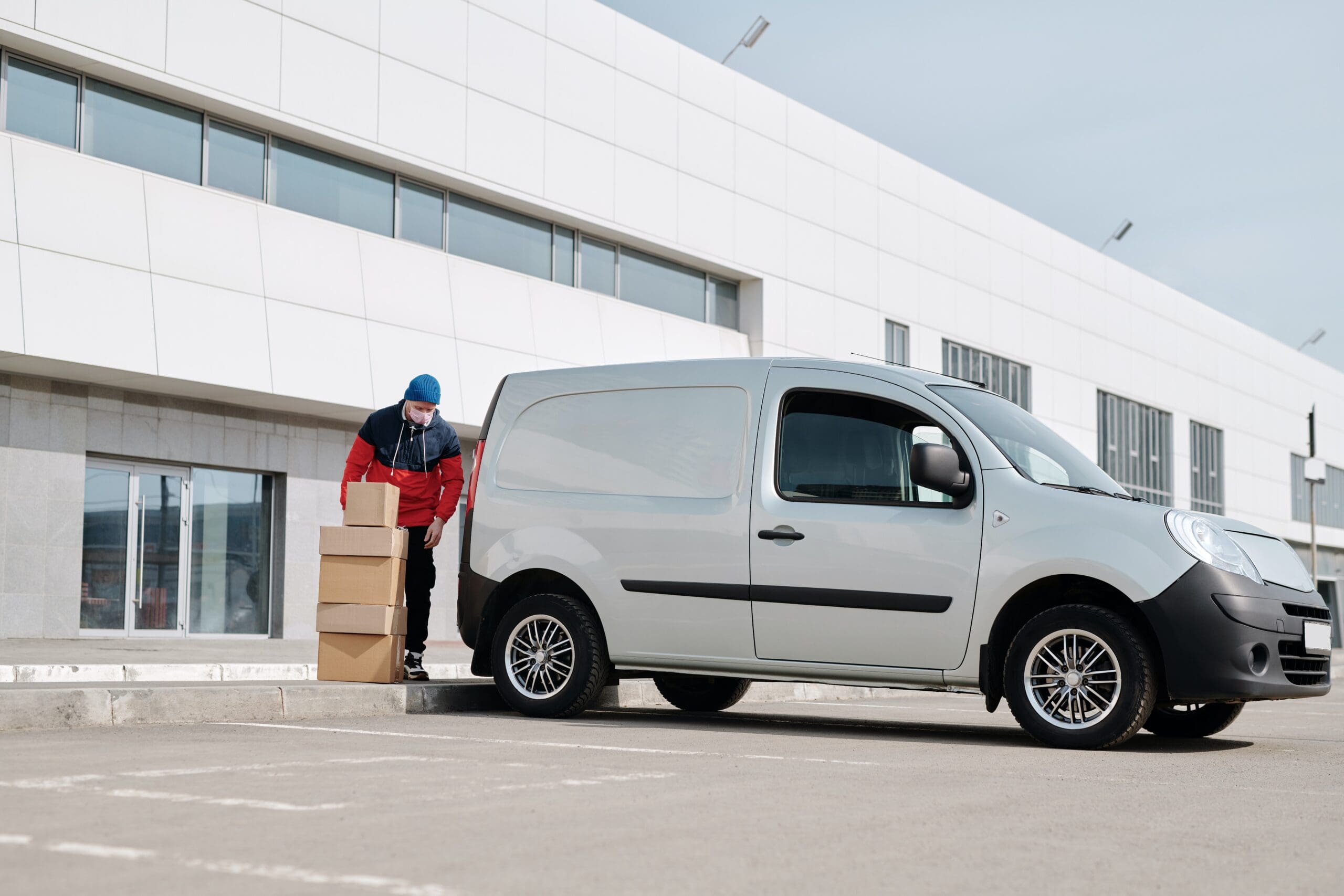When your business revolves around your van getting you from A to B, it’s so important that you choose the right one.
Whether your van is simply for function, or if you really want to impress potential clients, having the right van can make a significant difference to both your success and efficiency.
There could be so many reasons why you’re starting to look at getting a new vehicle, but you should always make sure your new van is the very best fit.
If you’re looking for a new work van, there are some important things to consider.
Read our tips below on what you should be looking for!
What Type of Van Will Work Best for Your Business?
Above all else, your van needs to be the best fit for your business. You may not even realise how many different types of work vans are available!
Choosing the best van for work can sometimes be tricky, especially if you’re not sure where to start looking.
Talking to other tradesmen in your area of business can be helpful as they may have tried vehicles that you haven’t and can provide recommendations. You can also speak to your local dealership for advice on which models are the right size for what you will need.
We have put together a quick and simple guide on a few of the bestselling vans for tradesmen:
Panel Vans
A panel van is a relatively small cargo vehicle, also known as a blind van. It usually has a single front bench seat and the rest of the van is utilised for work equipment.
This is ideal for industries such as joinery or plumbing where you only need to take your tools from one job to the other and the rest of the materials are delivered separately.
One of the most common panel vans is a Citroen Berlingo or a Ford Transit.
Flat Bed Vans
More commonly known as a truck, a flatbed van can be articulated or rigid.
The bodywork is entirely flat and there are no sides or roof, making this the best van for work that requires a lot of long materials to be transported.
Tipper Vans
The most common tipper is a Ford transit tipper. A tipper van can be a great choice of van for work as it offers extra space along with the tipping functions of a bigger lorry.
Tippers are usually 3.5 ton with a payload of around 1,200 kg.
Mini-Bus Vans
Mini-buses are the best work van for industries like holiday or event travel.
Designed to carry passengers, a minibus is smaller than an actual bus but larger than a multipurpose or minivan.
The most common minibuses are the Ford Transit/Tourneo People Mover and the Fiat Ducato.
Luton Vans
A Luton van is a very popular work van across a wide range of industries due to its versatility of use.
Also known as a box van, a Luton van is a chassis cab truck with a large enclosed cargo area. The driver’s cab is separate from the cargo area so you can safely transport almost any material.
Crew Cab Vans
Commonly known as a double cab in van, a crew cab van has two rows of seats for the driver and passengers. This is the best work van for if you have a small team that needs to be able to get from one job to another, with minimal cargo.
Pickup Vans/4×4
A pickup van is a good option for a lot of labour focused jobs, such as gardening.
With a large open cargo area, you can easily transport tools and equipment. It is a light-duty truck so should not be used for industrial equipment.
There is a wide range of pickup trucks available.
Which Make and Model of Van?
As with any vehicle purchase, choosing the best work van is crucial.
It’s important that the van you choose is the one best suited to your work. This includes both cab space for the driver and any passengers, and plenty of room for any materials or equipment you will have to transport.
The most popular work vans each year include the Ford Transit range, Mercedes Benz Sprinter, Volkswagen Transporter and Ford Ranger.
Along with the physical aspects, there are also some other important things to consider:
- How much you’re looking to pay: This depends entirely on your businesses budget for a new van but it is important to remember that your van is an investment. For example, you can expect to pay around £10,000 for a 5 year old Ford Transit.
- Fuel consumption – How much fuel you generally use can also hugely affect the running costs of your van. The choice between petrol, diesel and electric rests on what exactly you plan to use your van for.
- The specification you require: As with purchasing a new car, the higher the specification, the higher the price. If you prefer a van with added tools such as sensors or a reverse parking camera, this can slightly limit your options.
- The year of the van: The last thing you want is to get rid of your current van, buy a new one and it not last a long time! The year of the van and mileage are important to the longevity of your vehicle.
Any questions? Our team are always happy to help on 07549 041672 or you can send us a message.

